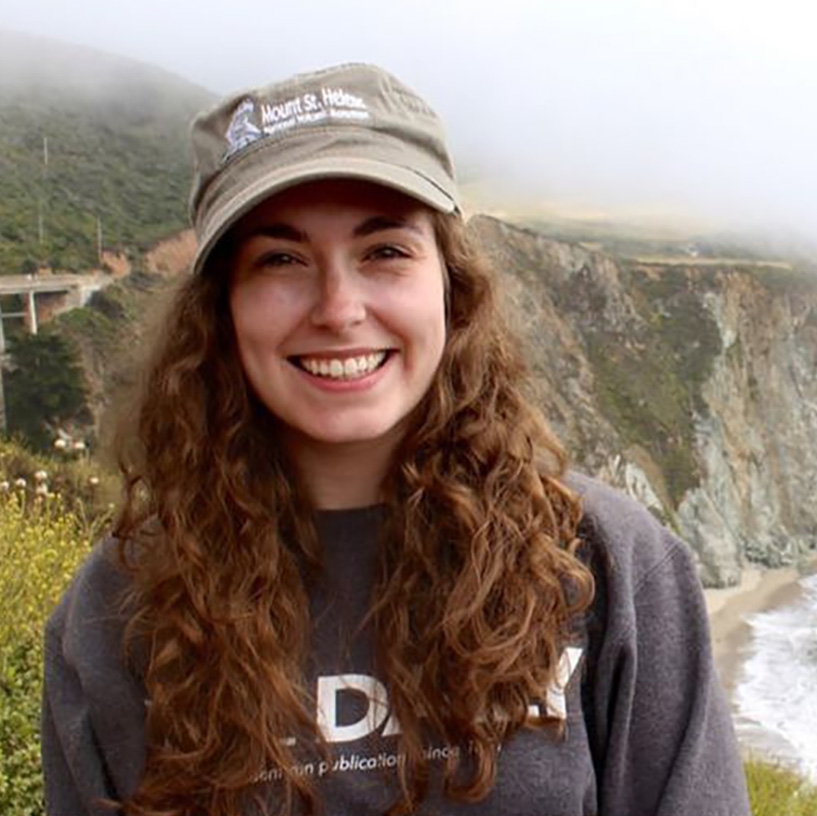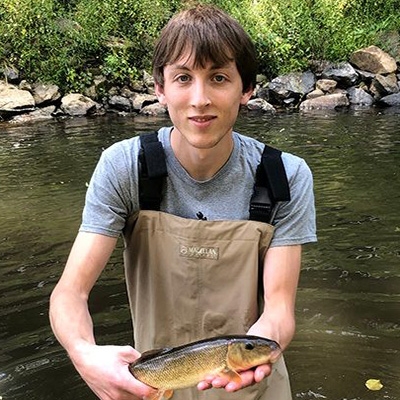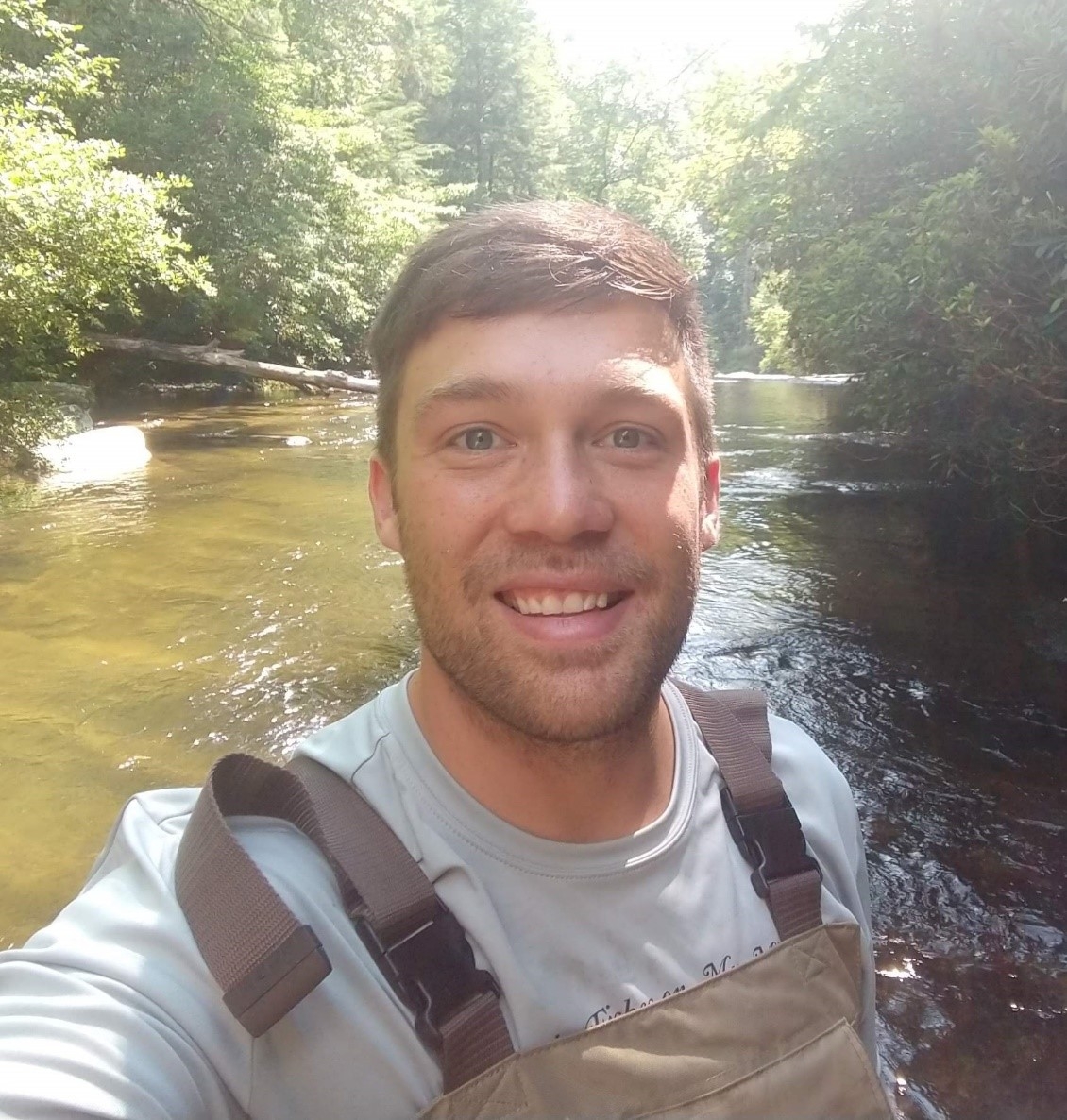Congratulations to IGC IGEP 2022-23 Global Change Interdisciplinary Graduate Assistantship Awardees!
June 24, 2022
The Interfaces of Global Change IGEP awards four Ph.D. fellowships every academic year, each covering tuition and stipend. These graduate research assistantships are awarded based on the student’s professional credentials, the student’s level of engagement in the IGC IGEP, pertinence of the student’s research to global change, the interdisciplinary nature of the work, and the student’s plan for using the one-year fellowship.
Please join us in congratulating Camilo Alfonso, Emma Bueren, Joshua Mouser and Sam Silknetter – recipients of this year’s IGC Fellowships! Read about each Fellow below.
Influence of glucocorticoids levels by annual survivorship and global change in the five major vertebrate groups

Camilo's research seeks to understand how animals respond to various aspects of global change by integrating the fields of physiology, ecology, and conservation. In the early 2000's, the field of conservation physiology emerged as a way to study the physiological and behaviorial mechanisms of wildlife in response to challenges under global change conditions (e.g. habitat loss, pollution, disease). Among other physiological traits, the measurement of glucocorticoid "stress" hormones has become a common tool for assessing environmental and health impacts on wildlife. Moreover, some studies have shown that individuals with high annual survivorship may have a more efficient glucocorticoid response to environmental stressors. Camilo's main goal for the fellowship period is to investigate the link between glucocorticoids, annual survivorship, and select global change facets.
Viral community interactions in the European Honey Bee (Apis mellifera)

Biodiversity loss is one of the primary global change challenges of our time. An example of this in the United States is the case for the domesticated honey bee, which in recent decades has suffered colony loss due to a suspected combination of habitat alternation and thus nutritional deficits, pesticide exposure, and climatic changes. In many organisms, such as the honey bee, the gut microbiome is known to contribute to host health by improving disease resistance, breaking down toxins, and maximizing nutrition absorption. Thus, manipulating the microbiome may mitigate some of the stressors impacting honey bee populations. However, the viral component of the microbiome, which consists of bacteria-infecting viruses (called bacteriophages or phages) is not well studied, despite being essentially universally present in the guts of all animals! Emma is investigating how these phages regulate the gut's bacterial community, and if these mechanisms can be leveraged to impact the overall health of the honey bee.
Using an interdisplinary approach to assess effects of agricultural best management practices on stream health

Agricultural nonpoint-source pollution is a complex, global issue which must be addressed using interdisciplinary research that engages multiple agencies and stakeholders. As global human population increase, we are increasingly dependent on food production from agriculture. However, increased pollutants from agricultural production can decrease biodiversity and reduce the ability of streams to provide the ecosystem services humans rely on (e.g. clean drinking water, recreation, and climate regulation), thereby decreasing human well-being. Best Management Principles (BMPs) are installed to balance natural ecosystem functions with food production, but stream health continues to decline despite billions of dollars on BMPs. Joshua's research inegrates watershed engineering, stream ecology, and social science to understand how managers can effectively balance agriculture and ecology using BMPs. He's using social science methods to understand how landscape conditions interact with BMPs to influence stream health.
Investigating the environmental and functional drivers of genetic structure in stream vertebrate populations





